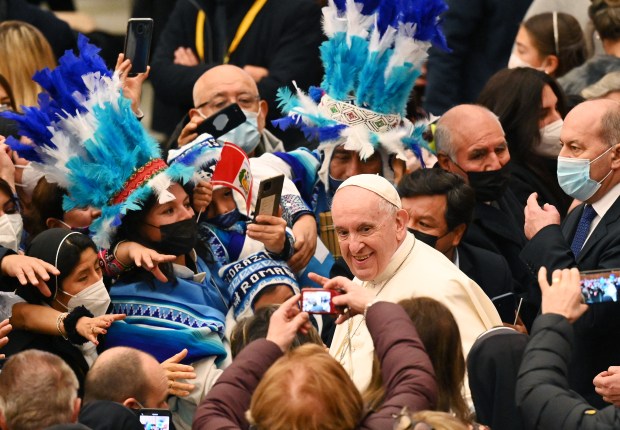Let us refuse to allow consumerism and indifference to "pollute" Christmas, Pope Francis urged, as he addressed the donors of the nativity scenes and the tree that decorate the Vatican this year.
During the audience, held December 10, he gave some recommendations to make the holiday "truly Christmas."
In the Paul VI Hall, the Pope met with the Peruvian delegation from Huancavelica - the department of the village of Chopoca where the crib in St. Peter's Square comes from - the Italian delegation from Andalo, in Trentino - where the tree came from - and the young people from Gallio, in the diocese of Padua, who made the crib for Paul VI Hall.
The Pope praised the Peruvian nativity scene, with its figures symbolizing the peoples of the Andes and "the universal call to holiness."

Referring also to the spruce tree from northern Italy, the pontiff stressed that it was a sign of Christ, "tree of life," representing "rebirth, the gift of God who unites with man forever." And the lights of the tree, added the Pope, recall "the light of love that continues to shine in the nights of the world."
"Let us not let it be polluted by consumerism and indifference. Please, let us not live a false Christmas, a commercial Christmas," he said.
The true Christmas climate? It is a climate "rich in tenderness, sharing and family intimacy," he emphasized, inviting us to let ourselves be "enveloped by the atmosphere of Christmas" that is revived by music, songs and traditions.
Finally, the Bishop of Rome spoke of the lesson of the crib where "God is revealed not as someone who dwells on high to dominate, but as the One who lowers himself, small and poor, to serve."
To make it "truly Christmas," he recommended taking special care "of the poorest, the weakest and most fragile, whom the pandemic risks marginalizing even more."


